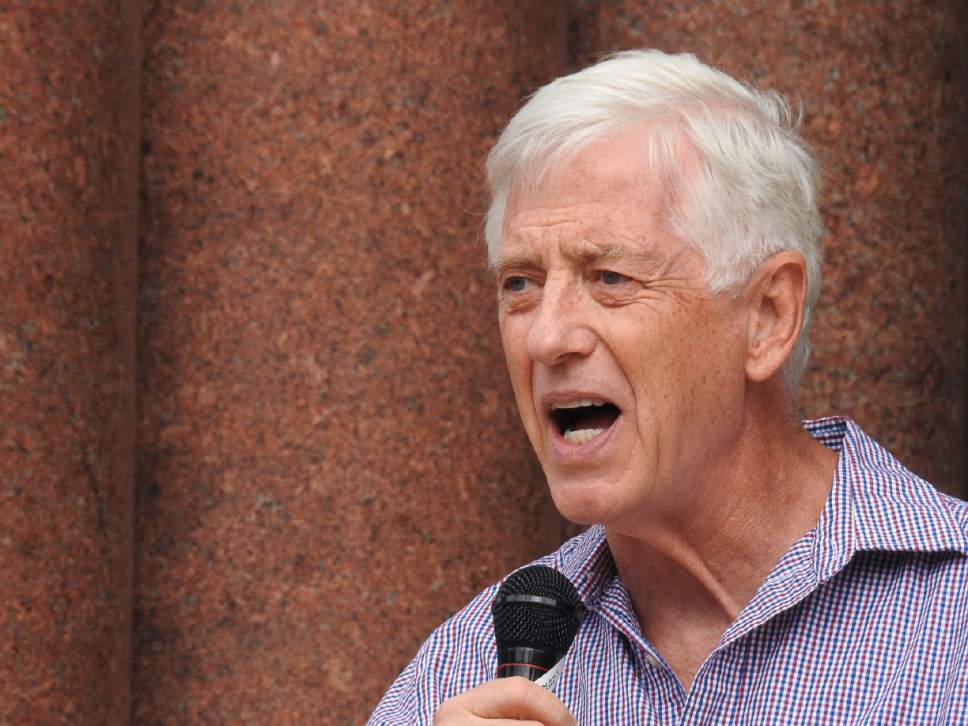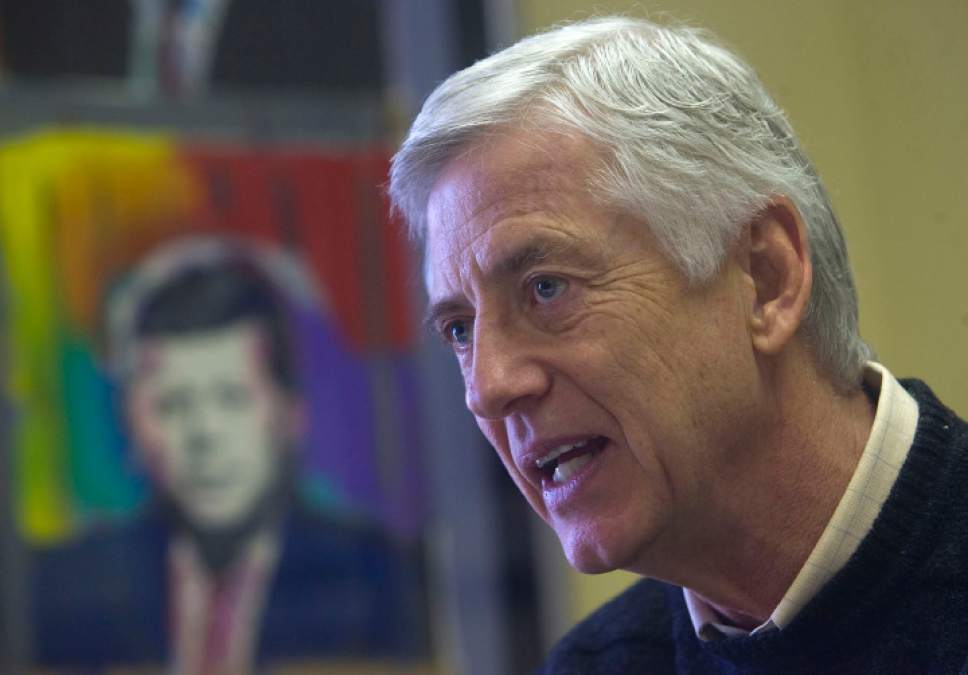This is an archived article that was published on sltrib.com in 2015, and information in the article may be outdated. It is provided only for personal research purposes and may not be reprinted.
The National Security Agency and Federal Bureau of Investigation want a Salt Lake City federal judge to throw out a lawsuit that claims widespread government surveillance of phone and email communications during the 2002 Winter Olympics.
In court documents filed last week, the NSA and FBI asked U.S. District Judge Robert Shelby to dismiss the lawsuit, claiming it offers no proof the spying occurred or that it affected the specific plaintiffs in the case.
In addition, the motion from Department of Justice attorneys says the government is immune from prosecution unless it commits "willful and intentional" privacy violations — a high standard.
"You'll notice, they don't deny having engaged in this misconduct," said attorney and former Salt Lake City Mayor Rocky Anderson, who filed the lawsuit in August on behalf of six plaintiffs.
The lawsuit accuses former President George W. Bush, former Vice President Dick Cheney and others associated with government intelligence agencies of monitoring emails, text messages and phone calls throughout the games.
Included among the plaintiffs are state Sen. Howard Stephenson, R-Draper, former Salt Lake City Councilwoman Deeda Seed and historian Will Bagley.
Anderson said he plans to present testimony from a witness who worked with the NSA at the time of the games and "has personal knowledge" of the surveillance, which covered all of Salt Lake City and areas around Olympic venues.
Anderson would not disclose any details about his source's identity or role with the agency.
Justice Department attorneys say the lawsuit asserts "no facts directly establishing that the government targeted [the plaintiffs'] communications for surveillance, or that particular communications to which they were parties were intercepted."
"Instead, Plaintiffs sweepingly assert that during the 2002 Winter Olympics, the NSA and the FBI conducted 'blanket surveillance ... over everyone' in and around Salt Lake City, including 'every text message,' 'every email,' and time, duration, and dialing information about 'every telephone [call]' sent from or received," government attorneys argue.
The allegation that the surveillance was "blanket" is the only support the lawsuit offers for its claim that the six plaintiffs were personally spied on, the motion states.
"Blanket means blanket," Anderson said. "We've alleged and have evidence that every single person who sent an email had the content of those emails subjected to surveillance. That every telephone call was subjected to the gathering of metadata. They'll say, 'These plaintiffs don't have standing because they can't prove their communications were subjected to illegal surveillance — and the reason they can't prove it is that we're going to hide the information from them.' "
Government attorneys could not be reached for comment on Thursday.
However, in court papers, the Justice Department points to an earlier case in which Wikimedia, the nonprofit parent company of Wikipedia, said the NSA likely had spied on its communications and based those claims on information that the NSA routinely intercepted "substantially all" such communications sent in the United States.
Wikimedia described the surveillance technology that allowed this gathering — but the court found Wikimedia's description of the program and claims of harm too speculative and based on supposition.
The plaintiffs in the Utah case have stronger evidence that they were personally affected because the scope of the alleged surveillance was defined by location and not restricted to communications on given topics or involving particular recipients or senders, Anderson said.
"The evidence is that the surveillance was done wholesale, to an entire population in a particular geographic area," he said. "This would have been the most massive, indiscriminate, warrantless, illegal spying on our citizens by the government, ever. They took an entire geographical area and scooped up everything for everybody."
Anderson repeated allegations that Qwest Communications cooperated with intelligence agencies to gather the data. A top-secret inspector general's report from 2009 — leaked to the Guardian newspaper by former NSA contractor Edward Snowden — detailed an agreement between the spy agency and "Company E," to "provide call detail records ... in support of security for the 2002 Olympics in Salt Lake City." Qwest Communications is believed to be "Company E," the lawsuit states.
The surveillance first was reported in 2013 by The Wall Street Journal, which quoted unnamed government officials as saying government agencies "monitored the content of all email and text communications in the Salt Lake City area" during the games.
But the lawsuit cites no "official government documents or official statements by government officials acknowledging that the government targeted communications in Salt Lake City for covert surveillance during the 2002 Winter Olympics, much less that any such surveillance encompassed 'everyone['s]' emails, text messages, and telephone calls," government attorneys say.
The expectation that plaintiffs use "official" sources to prove wrongdoing by secretive government intelligence agents is "absolutely ridiculous," Anderson said.
"This is our government. They should be providing us the information. If this is the most 'open and transparent' administration, they should be telling us. If [the Bush administration] broke the law, as we know they did in many respects, then [the Obama] administration ought to come clean," he said. "If there's no accountability, no disclosure, that really signals that our constitution is in many important respects a pretense and that the rule of law can no longer be said to apply in the United States."
Twitter: @erinalberty





